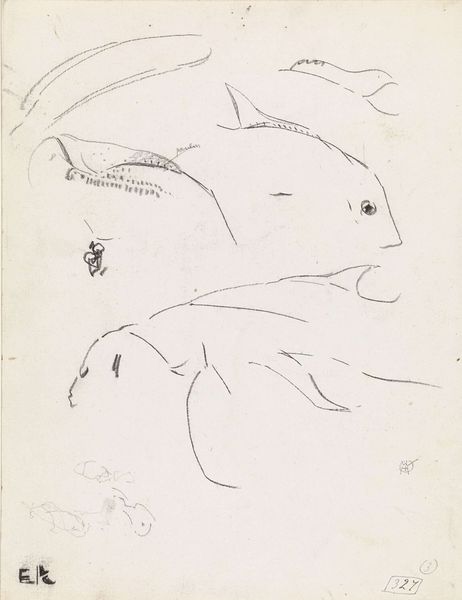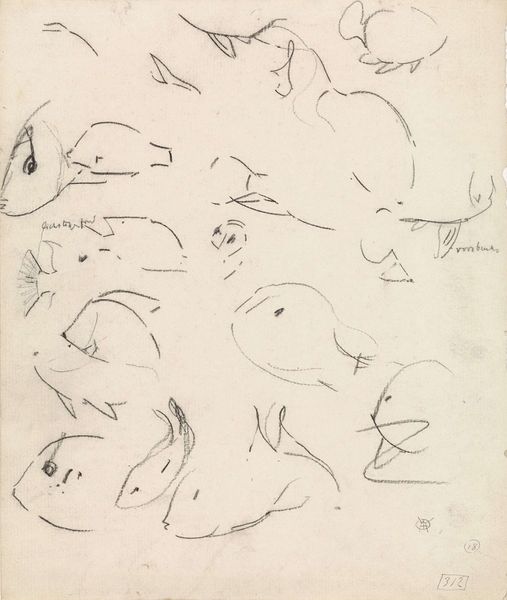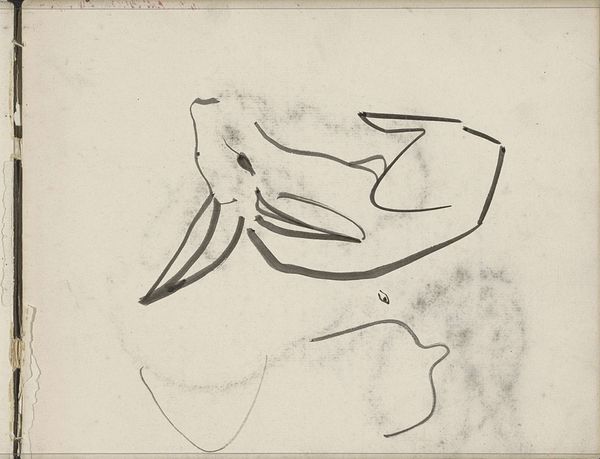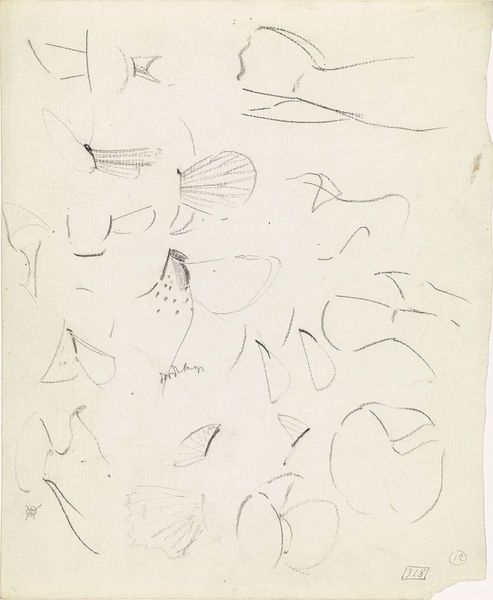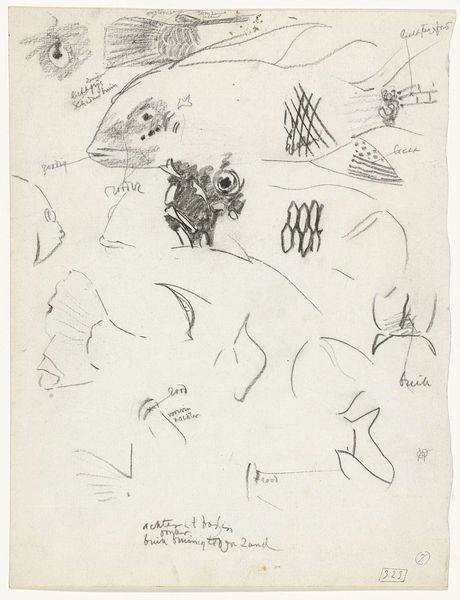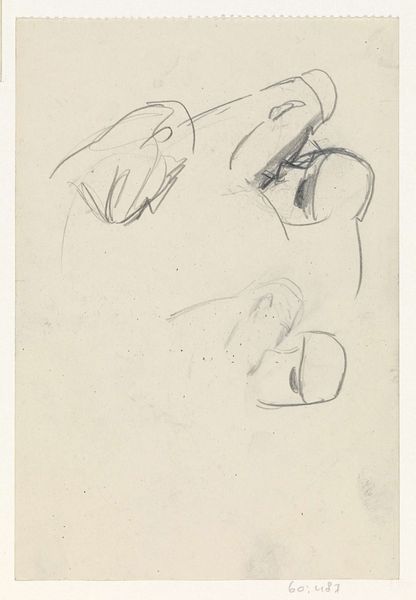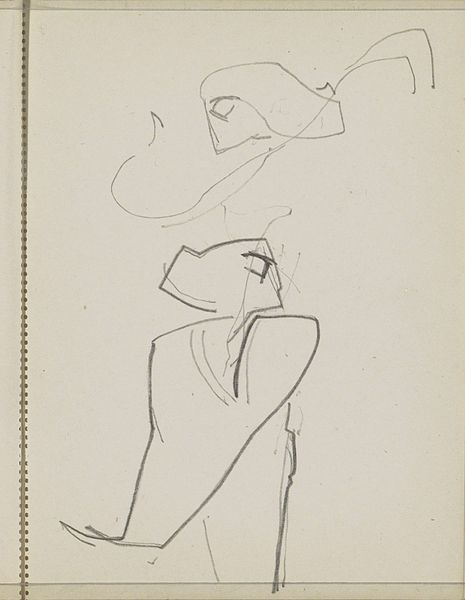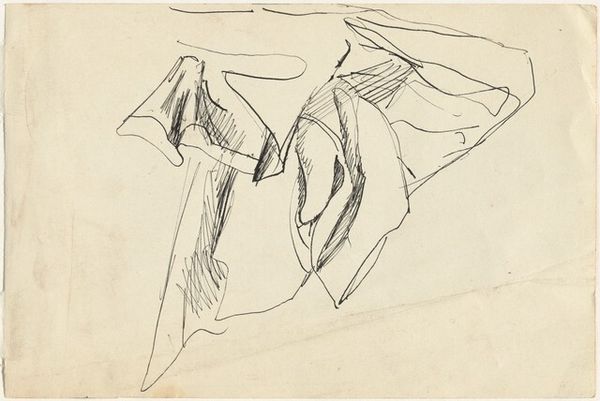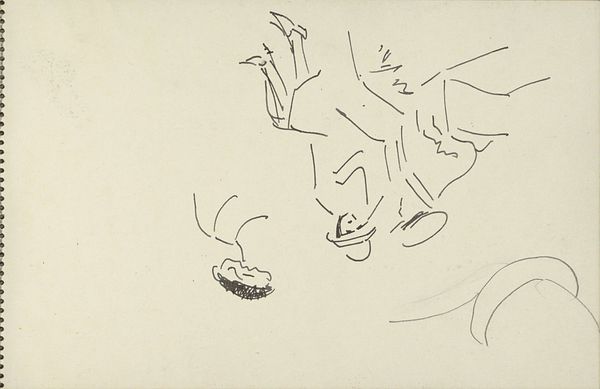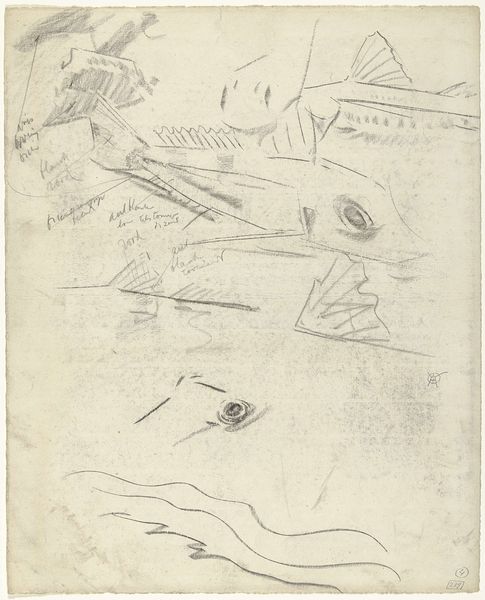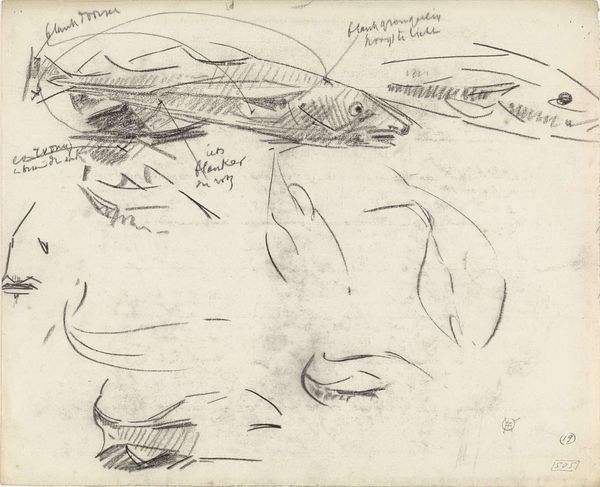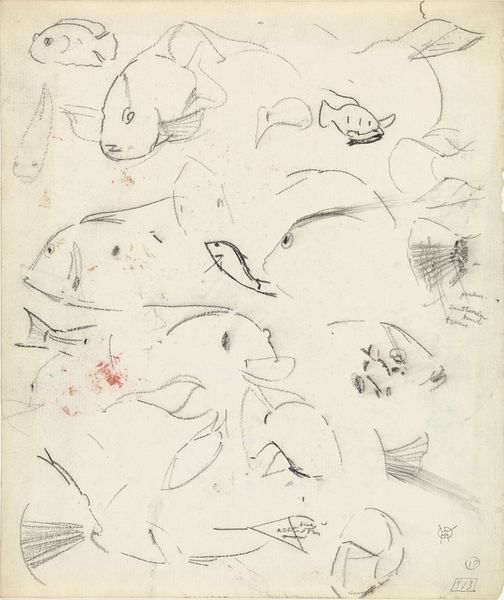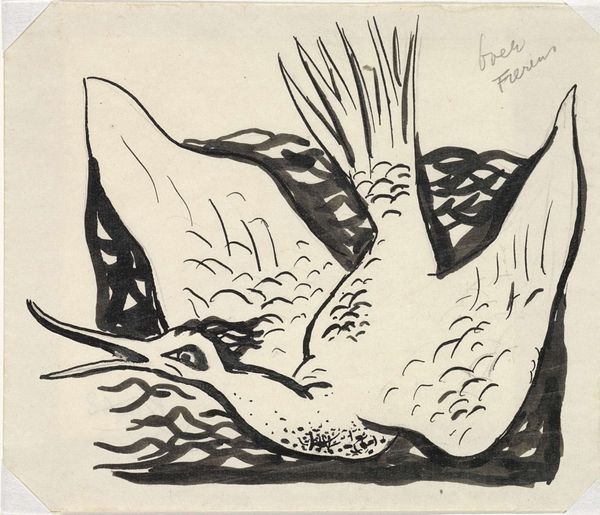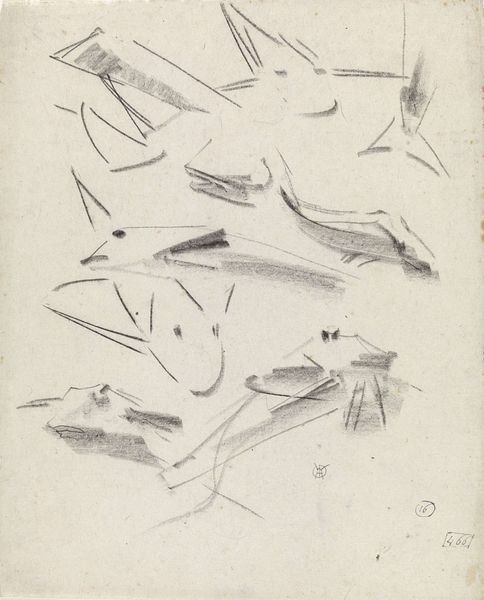
drawing, pencil
#
drawing
#
quirky sketch
#
pen sketch
#
figuration
#
personal sketchbook
#
idea generation sketch
#
sketchwork
#
ink drawing experimentation
#
pen-ink sketch
#
pencil
#
sketchbook drawing
#
sketchbook art
#
realism
#
initial sketch
Dimensions: height 291 mm, width 245 mm
Copyright: Rijks Museum: Open Domain
Curator: Welcome. We are standing before "Studies van vissen", or "Studies of Fish", by Gerrit Willem Dijsselhof, made sometime between 1876 and 1924. Editor: My first impression is that these scribbled pencil and ink studies feel both scientific and deeply whimsical, as if Darwin doodled fish. There’s a raw curiosity here, even in its incomplete state. Curator: That’s an insightful read, I think Dijsselhof, entrenched in a late 19th, early 20th century European artistic landscape increasingly concerned with naturalism and exploration, created something far removed from the world's later colonial gaze, though admittedly, as a study piece, his socio-political influences cannot be assessed. What these studies invite me to think about is a different, unique visual syntax to represent these beings. The collection invites questions concerning representation, power dynamics within artistic representations of the natural world, and whether Dijsselhof succeeded in challenging the colonial normativity within art at the time. Editor: Yes, the question of intention is significant when interrogating Dijsselhof's aims and its relationship with contemporary socio-political awareness in European naturalist depictions. In my view, these fish sketches exemplify this perfectly as studies of an individual deeply engrossed in studying morphology and form in the aquatic animal kingdom, rather than with a conscious intent on tackling issues on post-colonial representation. Perhaps his exploration, by choosing humbleness within these observational drawings of form is, itself, a statement of art that exists free from power structures? Curator: An appealing perspective. It's fascinating to analyze the cultural implications in relation to artistic and scientific practices of his time. Even the unfinished nature suggests, perhaps, a non-exploitative stance on documentation. Editor: Agreed. Viewing this work makes me ponder, "Where could his observational study on this topic lead today, with modern marine-biological tech?" Curator: The possibilities for our grasp on ecological awareness in the art world are seemingly boundless; an invigorating prospect, indeed.
Comments
No comments
Be the first to comment and join the conversation on the ultimate creative platform.
